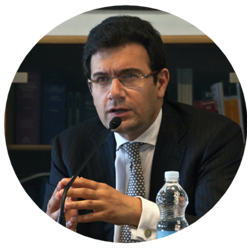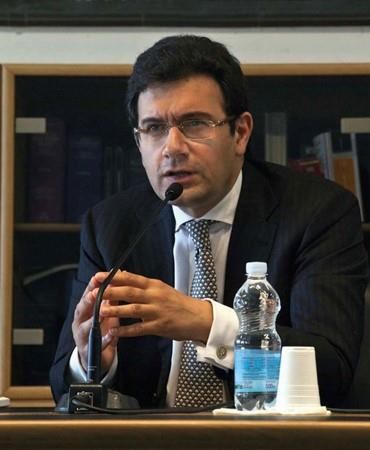Jurisdictions
- Bermuda
- Guernsey
- Bahamas
- Barbados
- Seychelles
- Liechtenstein
- Singapore
- British Virgin Islands
- Hong Kong
- Luxembourg
- Antigua
- Switzerland
- Cayman Islands
- Nevis
- New Zealand
- Belize
- Netherlands
- Ireland
- United Kingdom
- United Arab Emirates
- Mauritius
- Jersey
- Labuan
- Rwanda
- Gibraltar
- Marshall Islands
- Samoa
- Panama
- St Vincent & The Grenadines
- Austria
- Madeira
Industry Sectors
- Hedge Funds and Alternative Investments
- Citizenship and Residency
- International Tax Planning
- Islamic Finance
- Fintech
- Insurance/Reinsurance
- Investment Funds
- Trusts And Foundations
- Private Banking
- Wealth Management
- Philanthropy
- Offshore Securities Markets
- Sustainable Finance
- Family Offices
- Arbitration
- Regulation and Policy
- Comment
- Big Debate
- In the Chair
- Global Regulation & Policy
- Features
- Sector Research
- Jurisdictions
- British Virgin Islands
- Cayman Islands
- Belize
- Bahamas
- Guernsey
- Switzerland
- Bermuda
- Barbados
- Singapore
- Hong Kong
- Luxembourg
- Labuan
- Jersey
- United Arab Emirates
- Ireland
- New Zealand
- Netherlands
- Liechtenstein
- Mauritius
- Antigua
- Rwanda
- Austria
- Seychelles
- Anguilla
- Samoa
- Marshall Islands
- Gibraltar
- Nevis
- United Kingdom
- North America
- Canada
- Asia
- Africa
- Latin America
- Australasia
- Europe
- Industry Sectors
- Hedge Funds and Alternative Investments
- Citizenship and Residency
- International Tax Planning
- Islamic Finance
- Fintech
- Insurance/Reinsurance
- Investment Funds
- Trusts And Foundations
- Private Banking
- Wealth Management
- Philanthropy
- Offshore Securities Markets
- Sustainable Finance
- Family Offices
- Arbitration
- Regulation and Policy
28/01/21
From Big Debate
What Makes A Successful IFC?

What makes a good IFC and what does it take to survive? How can IFCs continue to innovate in the face of the never-ending onslaught of legislation and regulations enforced by the EU and OECD, post-COVID 19 challenges, and the challenges of protectionism vs globalisation?
Featuring Comment From:

 Paolo Panico, director of Private Trustees SA
Paolo Panico, director of Private Trustees SA
"Two dimensions contribute to the success of an international financial centre (IFC): its regional relevance and its legal and regulatory infrastructure."
 Matthew Collin, David M. Rubenstein Fellow, Brookings Institution
Matthew Collin, David M. Rubenstein Fellow, Brookings Institution

 "If OFCs want to stay competitive in the next era, they will have to find a new comparative advantage."
"If OFCs want to stay competitive in the next era, they will have to find a new comparative advantage."

 Simon Morgan TEP, Head of Private Wealth at Vistra Jersey and worldwide STEP Chair 2019/2020
Simon Morgan TEP, Head of Private Wealth at Vistra Jersey and worldwide STEP Chair 2019/2020
"Change is the only constant and IFCs need to have a forward-thinking approach both in relation to technology and product evolution to stay at the forefront of industry developments and trends."
Oliver Cooper, Policy Lead, Stikeman Elliott
"The name ‘IFCs’ may imply they trade in finance, but they really trade in something else: trust. Without trust, IFCs don’t stand a chance."
Paolo Panico, director of Private Trustees SA

Two dimensions contribute to the success of an international financial centre (IFC): its regional relevance and its legal and regulatory infrastructure.
Some IFCs rely on a geographic position which determines their natural area of influence. This is coupled with their political stability, their effective legal system, and their skilled and multicultural workforce.
Smaller IFCs owe most of their success to carefully crafted legislation which suits (and sometimes anticipates) market trends and requirements. The very survival of such IFCs in the current, increasingly complex times, is a balanced mix of regulations securing compliance with the present international standards and a client friendly attitude.
It is a very difficult exercise. Regulations in all areas of the financial industry, and particularly in AML, are creating the conditions for a sound and transparent world financial system. That trend cannot (and probably should not) be stopped. Nonetheless, multiple layers of regulations which add up every year, often in an uncoordinated way, increase exponentially the costs of doing business.
If due to excessive regulation the time and the effort required to do business in an offshore IFC exceed by far the corresponding standards in onshore centres, an unstoppable outflow of business will be the result.
It is clients not regulations that pay the professionals’ bills. The main regulatory challenge in these times is to set a framework enabling to select and serve clients effectively.
Matthew Collin, David M. Rubenstein Fellow, Brookings Institution

In the past the offshore industry has flourished not because it adds real value to the global economy, but because it enjoys an unfair regulatory advantage. One of the largest predictors of the flow of financial wealth to offshore financial centers is their level of financial secrecy: multiple studies have found bank deposits flee these jurisdictions once they sign automatic-exchange-of-information agreements. Similarly, recent research has found that most of the FDI that makes its way to OFCs is phantom investment, re-routed solely for tax-planning rather than economic opportunity.
That era is ending. As tax transparency and anti-abuse policies proliferate, private wealth and global profits will continue to shift elsewhere. If OFCs want to stay competitive in the next era, they will have to find a new comparative advantage. I suggest that OFCs turn away from their worst impulses and lean on their better virtues: stability, expertise, and adherence to international standards. In a world wracked by political and economic tumult, traditional 'onshore' financial centres are looking less like the safe havens they once were. As recent scandals have shown, they are also faltering in efforts to keep out illicit cash. OFCs should choose the high ground, fast track policies that make them less hospitable to tax evasion, corruption and shifted profits, and let their financial services industries become known for their competence and efficiency, rather than their opacity.
Simon Morgan TEP, Head of Private Wealth at Vistra Jersey and worldwide STEP Chair 2019/2020

To me, an IFC must demonstrate five important qualities to succeed and thrive:
- They must have a strong, clear and effective regulatory framework: it is essential to have a robust regulatory regime to combat financial crime and unethical practices.
- They must have a highly skilled workforce: successful IFCs must have a pool of highly educated and qualified practitioners, with a focus on continuous learning to keep knowledge and skills up to date.
- They must be committed to innovation: change is the only constant and IFCs need to have a forward-thinking approach both in relation to technology and product evolution to stay at the forefront of industry developments and trends.
- They must have political and economic stability: clients must have confidence that business can be transacted with certainty and transparency.
- They must be resilient: recent events have demonstrated the importance of resilience and adaptability and the need for government, regulator and industry to work together to respond to challenges quickly and effectively.
Oliver Cooper, Policy Lead, Stikeman Elliott

The name ‘IFCs’ may imply they trade in finance, but they really trade in something else: trust. Without trust, IFCs don’t stand a chance – it’s reliability and dependability that sort the best from the rest.
IFCs require trusted legal institutions to ensure disputes can be resolved fairly, predictably, and cost-effectively wherever in the world investors or investments are. But that’s only the basic requirement of an IFC – just the price of admission. How else is trust needed?
Successful IFCs see government collaborate closely with professionals. Co-opting business expertise to co-design regulation and messaging from their genesis avoids whipsaw changes that saddle professionals and clients with more uncertainty and cost.
At the same time, the leading IFCs make real commitments to adhere closely to global regulatory standards. A reputation for recalcitrance creates uncertainty – so successful IFCs make a virtue out of gold standard compliance.
Trust also requires long-term commitments from all political actors. Political risk begets regulatory risk, and IFCs cannot thrive if investors think their future is on the ballot paper.
Trust is key, and that means more than the trusted institutions that are the sector’s stock in trade. IFCs need a culture of trust between governments, professionals, and clients – and that precious commodity is a lot harder to create than destroy.



